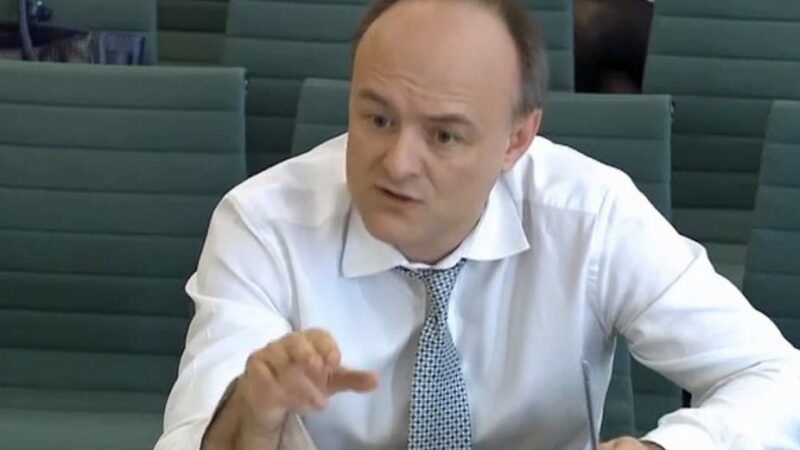PM adviser Dominic Cummings was widely believed to be one of those pushing for the government to 'whack' the Beeb.

Campaigners are demanding the government ditches an inquiry that could cost the BBC hundreds of millions of pounds a year, amid growing recognition that the broadcaster has proved invaluable during the coronavirus crisis.
On Wednesday, the Tories’ consultation on whether to decriminalise non-payment of the TV licence closed – with the process widely seen as part of Conservative efforts to ‘whack’ the BBC for its 2019 election coverage.
The National Union of Journalists say the move was ‘always a complete distraction’. While the consultation period ended on April 1st, the NUJ says the inquiry must be dropped altogether.
The estimated cost to the BBC if decriminalisation is adopted is between £200m and £500m. In 2018, no one was imprisoned for not paying their TV licence, but its existence is understood to be crucial in ensuring the BBC is fully-funded.
The BBC have in recent weeks provided a platform for major public information campaigns reaching nearly every household of the UK, and have today launched a new education service for children forced to stay at home due to the COVID-19 crisis.
The corporation recently announced it would be delaying 450 planned job cuts in its news division – the result of being forced to pay for TV licenses for the over-75s (a cost previously covered by central government).
A 38 Degrees petition to ‘save the BBC’ has been signed by nearly 300,000 people. Directed at Boris Johnson, it calls on the government to: “Stop attempting to undermine the BBC and the role it plays in independently holding the government to account…As we face the current health crisis, it has never been more important to have trusted news and information that we, as a nation, can rely on.”
Michelle Stanistreet, NUJ general secretary, said:
“It’s time for the government to set aside this consultation into the decriminalisation of the licence fee. Only ever an ill-motivated act of political sabotage, such an exercise is now completely out of keeping with the times we are in. Whatever its detractors may feel in their hearts, no one can deny that the BBC has risen to the challenge posed by this pandemic and demonstrated its worth, day in day out, as a vital and valued British institution.
“Journalists and programme-makers are working around the clock to ensure the public is kept fully informed, engaged and entertained during the most uncertain and challenging of times. We should all be proud, but more importantly there needs to be meaningful action and support if the BBC is to sustain itself.
“The measures it has rightly taken – to defer consultations over job losses caused by the last licence fee settlement, and to put off changes to licences for the over 75s – come with a financial toll that the BBC, its staff and the public should not have to pay. The political conversation needs to change, to acknowledge the vital role that our public service broadcaster plays, particularly at a time of national crisis, and work collectively to ensure that its future is sustainable and protected.”
The BBC has put in a huge range of extra measures to inform, educate and entertain the public during the coronavirus crisis.
A third of the population are watching the BBC News at Six, and digital audiences are increasing, with more than 40m unique UK browsers daily – around two thirds of the UK population. The Prime Minister’s statement on Monday 16th March was watched by 18m on the BBC.
BBC local radio stations have also launched the ‘Make a Difference’ campaign which puts people in need of help in touch with volunteers, with the Beeb acting ‘as a friend’ to those who live on their own.
The corporation has increased its collection of box-set offerings on iPlayer, launched a virtual arts festival, Culture in Quarantine, and provided families forced to school their children from home with a massively expanded range of BBC Bitesize content, alongsidea daily educational programme for different key stages. An online “explainer” on the virus’ symptoms was read 50m times.
The NUJ’s submission to the licence fee consultation is here.
Josiah Mortimer is co-editor of Left Foot Forward.
Left Foot Forward doesn't have the backing of big business or billionaires. We rely on the kind and generous support of ordinary people like you.
You can support hard-hitting journalism that holds the right to account, provides a forum for debate among progressives, and covers the stories the rest of the media ignore. Donate today.



